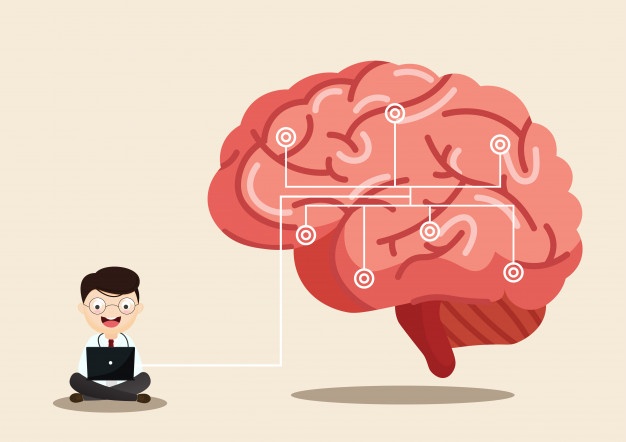As we age, maintaining a sharp memory and overall brain health becomes essential for leading a fulfilling life. With the right approach, you can boost your memory, sharpen your focus, and enhance cognitive function. This article explores science-backed strategies to maintain a healthy brain and improve memory performance, from embracing new learning styles to cultivating artistic interests and adopting a lifelong learning mentality.
Embrace New Learning Styles and Formats for Brain Health

Our brains are remarkable organs that have the capacity to adapt and grow throughout our lives. One of the most effective ways to boost your memory and maintain a healthy brain is by adopting new learning styles. By continuously engaging with different types of learning formats, you can enhance neural connections, foster creativity, and improve cognitive flexibility.
Interactive Learning: Engaging Your Brain
Interactive learning, such as online courses, quizzes, and hands-on experiences, can keep your mind actively engaged. According to experts, hands-on learning encourages deeper retention of knowledge, as it stimulates various brain areas simultaneously. For instance, learning a new language through interactive apps, joining online discussions, or attending workshops can significantly boost memory retention.
Visual Learning: Utilizing Visual Aids
Visual learning incorporates images, charts, graphs, and diagrams to facilitate understanding and memory recall. Research shows that visual learning stimulates the brain more effectively than passive reading alone. Adding visual aids to your learning process can make information more memorable and improve retention. Apps that use gamification elements, like Duolingo or Memrise, can be beneficial for learning new languages or concepts while enhancing brain function.
Auditory Learning: Amplify Your Cognitive Strengths
For auditory learners, listening to podcasts, audiobooks, or engaging in discussions can stimulate brain activity. Studies suggest that auditory learners can process and retain information better through sound, as it helps strengthen the brain’s auditory processing system. This format is especially beneficial for people on the go, allowing you to absorb new information while multitasking.
Cultivate a Broad Range of Artistic Interests for Cognitive Flexibility

Engaging in artistic pursuits is not only fun but also plays a pivotal role in maintaining a healthy brain. Whether it’s painting, playing a musical instrument, or dancing, participating in various artistic activities can have profound cognitive benefits.
Music and Memory: The Power of Sound
Music has long been associated with boosting brain health, particularly when it comes to memory retention. Learning to play an instrument, for example, enhances memory, concentration, and spatial-temporal skills. Studies show that musicians often have better working memory and cognitive flexibility compared to non-musicians. You don’t have to become a professional musician to experience these benefits—simply playing an instrument for fun can stimulate neural pathways that enhance brain function.

Art and Cognitive Development: Creativity at Work
Creating visual art can significantly boost cognitive development. Whether it’s sketching, painting, or even digital art, the creative process encourages problem-solving and stimulates the brain’s visual and motor regions. It also helps improve hand-eye coordination and promotes neuroplasticity—the brain’s ability to reorganize itself by forming new neural connections. Engaging in art can also be a stress-relieving activity, which further contributes to a healthy mind.
Dance and Physical Movement: Boosting Cognitive Function
Dance is another form of artistic expression that not only strengthens your body but also boosts cognitive function. Studies have shown that dancing improves memory, increases cognitive flexibility, and enhances overall brain health. Dance combines physical movement with rhythm and coordination, which stimulates multiple areas of the brain, improving everything from spatial awareness to memory recall.
Becoming a Lifelong Learner Can Help You Maintain a Healthy Brain

The key to brain health lies in continuous learning. Becoming a lifelong learner means constantly challenging yourself and seeking new knowledge throughout your life. This commitment to growth and education is essential for keeping the brain sharp, resilient, and adaptable.
Engage in New Challenges to Keep Your Brain Active
Learning new skills or pursuing new hobbies, such as cooking, photography, or coding, stimulates neuroplasticity. According to brain experts, trying something new activates the brain’s reward system and fosters the development of new neural connections. The more you challenge your brain with novel activities, the stronger and healthier your cognitive abilities become.
Mindfulness and Mental Health: A Lifelong Commitment
Along with intellectual pursuits, mental health practices like mindfulness, meditation, and mindfulness-based stress reduction (MBSR) can support cognitive function and memory. Studies have shown that mindfulness practices can help improve focus, attention, and memory while reducing stress and anxiety, which negatively affect brain health. Engaging in mindfulness exercises daily can enhance your ability to stay present and cultivate a sharper mind.
Social Engagement: The Brain Benefits of Connection
Maintaining social connections and engaging in meaningful conversations with others also plays a vital role in brain health. Research has demonstrated that social interaction improves cognitive function, boosts mood, and reduces the risk of cognitive decline. Participating in group activities, joining clubs or organizations, and maintaining strong relationships with family and friends can help keep your mind sharp and your brain healthy.

Diet and Exercise: Fueling Brain Health
While learning and engaging in creative activities are vital for brain health, the food you eat and your physical activity levels also play an essential role in maintaining cognitive function.
Brain-Boosting Foods
Certain foods are particularly beneficial for brain health, including those rich in antioxidants, healthy fats, vitamins, and minerals. Omega-3 fatty acids, found in fatty fish like salmon and walnuts, are essential for brain function and memory. Berries, leafy greens, and nuts are also packed with antioxidants, which protect the brain from oxidative stress and support long-term cognitive health.
Physical Exercise for Cognitive Performance
Exercise is one of the most effective ways to boost memory and brain health. Regular physical activity increases blood flow to the brain, promoting the growth of new brain cells and enhancing memory. Aerobic exercise, such as jogging, swimming, or cycling, has been shown to increase brain plasticity and improve learning and memory. Aim for at least 30 minutes of exercise most days of the week to enjoy the full cognitive benefits.
Final Thoughts on Maintaining a Healthy Brain
Maintaining a healthy brain and boosting memory is a lifelong process that involves continuous learning, engaging in artistic pursuits, staying socially connected, and taking care of your body. By embracing new learning styles, cultivating a broad range of interests, and adopting a lifelong learning mindset, you can enhance your cognitive abilities and enjoy a sharp, active mind throughout your life.
For more tips on how to maintain a healthy brain and improve memory, visit Harvard Health Blog and explore other cognitive wellness resources.









Leave a Reply